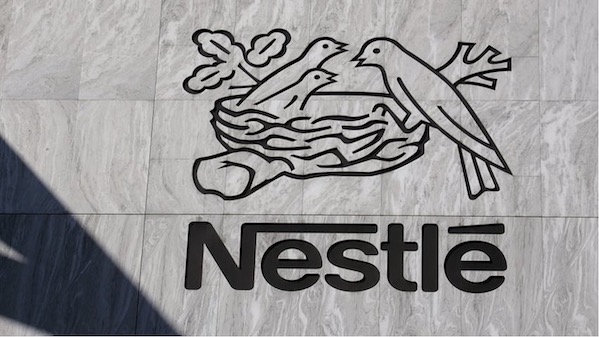Years after $2B buyout, Nestlé ditches Aimmune’s peanut allergy drug Palforzia
September 7, 2023
Source: drugdu
 381
381

After lackluster sales dampened the initial enthusiasm that came with a $2.1 billion acquisition, Nestlé has finally found a new owner for its peanut allergy drug Palforzia.
Nestlé has divested Palforzia to U.S.-based allergy specialist Stallergenes Greer for an undisclosed sum, the food giant said Tuesday.
The transaction closed when the two companies signed the agreement. Nestlé will receive milestone payments and royalties from Stallergenes Greer.
The deal comes later than expected. Back in November, Nestlé announced a strategic review of Palforzia, citing slower-than-expected uptake by patients and doctors. At that time, the review was expected to be done in the first half of 2023.
Palforzia became the first drug approved by the FDA for peanut allergy in children in January 2020. Back then, Evaluate Pharma projected that the drug could reach $1.28 billion in sales by 2024.
Seeing Palforzia’s value in its food allergy portfolio, Nestlé in August 2020 splashed $2.1 billion to acquire the remaining shares of the drug’s developer, Aimmune Therapeutics. The deal marked Nestlé CEO Mark Schneider’s big foray into pharma for its health science unit.
Apparently, the drug never took off.
Part of its disappointing performance was the pandemic’s doing. Another part, as Credit Suisse analysts pointed out back in 2019, stems from the drug’s cumbersome administration requirements and frequent doctor visits, compared with the tried-and-true strategy of peanut avoidance.
Palforzia is essentially peanut protein in a small amount. Patients receive gradually increasing doses of the drug at a doctor’s office for about half a year before they start to take a maintenance regimen at home.
The idea of allergen immunotherapy, or desensitization, dovetails with Stallergenes Greer’s business. The company markets Staloral for allergic rhinitis or asthma, the dust mite allergen extract Actair and grass pollen mixture Oralair. The Palforzia deal has made Stallergenes the first allergen immunotherapy company to offer both respiratory and food allergy treatments, the company’s CEO Michele Antonelli said.
For Nestlé, the sale “allows Nestlé Health Science to focus on its core strengths and key growth drivers,” Greg Behar, who leads the unit, said in a statement Tuesday.
Nestlé Health Science has a global pharma unit in which most of its employees work on more than one product, a Nestlé spokesperson told Fierce Pharma. The deal allows Nestlé to focus its pharma business on the gastrointestinal therapeutic area, the spokesperson added.
One of the division’s focuses these days is Vowst, a live microbiome therapy that recently won FDA approval to prevent recurrence of Clostridioides difficile infection. The drug is also the first therapeutic oral microbiome.
Seres Therapeutics developed Vowst with the idea to use a “good” microbiome to outcompete C. difficile. Seres and Nestlé co-commercialize the drug through a deal signed in 2021. Nestlé is contributing a gastrointestinal marketing team of 150 people, a payer access team and a hospital sales force, according to Seres.
Vowst became available in the U.S. in early June and generated $1.6 million during the partial month. By July 27, 480 doctors have prescribed the drug, Seres said last month.
https://www.fiercepharma.com/pharma/2b-and-3-years-later-nestle-ditches-aimmunes-peanut-allergy-drug-palforzia
By editorRead more on
- The first subject has been dosed in the Phase I clinical trial of Yuandong Bio’s EP-0210 monoclonal antibody injection. February 10, 2026
- Clinical trial of recombinant herpes zoster ZFA01 adjuvant vaccine (CHO cells) approved February 10, 2026
- Heyu Pharmaceuticals’ FGFR4 inhibitor ipagoglottinib has received Fast Track designation from the FDA for the treatment of advanced HCC patients with FGF19 overexpression who have been treated with ICIs and mTKIs. February 10, 2026
- Sanofi’s “Rilzabrutinib” has been recognized as a Breakthrough Therapy in the United States and an Orphan Drug in Japan, and has applied for marketing approval in China. February 10, 2026
- Domestically developed blockbuster ADC approved for new indication February 10, 2026
your submission has already been received.
OK
Subscribe
Please enter a valid Email address!
Submit
The most relevant industry news & insight will be sent to you every two weeks.



